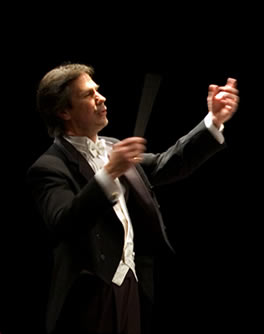Heatherington, Ars Viva provide eloquent advocacy for Dvořák

Alan Heatherington described himself at Sunday afternoon’s season-ending Ars Viva concert at the North Shore Center for the Performing Arts as “a fanatical devotee of Dvořák.”
As eloquently and entertainingly as the Ars Viva music director spoke of Dvořák’s life and music, nothing could compare to Heatherington allowing Dvořák’s music to speak for itself.
Heatherington considers Dvořák’s Seventh Symphony his greatest work, although the Eighth and the Ninth are more popular with audiences. It would be hard to argue the point after a performance as revelatory as Heatherington conducted with Ars Viva.
There was an ethereal but brooding quality to the opening movement as the work unfolded, setting the tone of the overall performance. The wonderfully singing string lines of the second movement were exquisitely played and led into an impressive dramatic buildup of tension that gave way to a particularly satisfying and dynamically-nuanced release.
The Scherzo had a wonderfully playful and lilting quality to it, spotlighting its incorporation of the rhythms of the Czech furiant but with Dvořák’s own inventive melodic material molded to sound like actual folk music. The finale was a model of teasing bipolarity with its excursions in and out of D minor into D Major where the piece ends in blissful optimistic affirmation.
The scheduled piano concerto that was to have been played by a Steinway Concerto Competition Winner was unfortunately canceled by the sale of the Steinway piano dealership that had sponsored the competition.
Since the opening work—Borodin’s Overture to Prince Igor—was edited by Alexander Glazunov after Borodin’s death, Heatherington programmed Stenka Razin, by Glazunov himself to take the concerto’s place. This rarely heard tone poem was composed in 1885, the same year that Dvořák premiered his Seventh Symphony.
The flashy, programmatic fifteen-minute piece attempts to musically portray the exploits of the 17th-century Cossack Stenka Razin along the Volga River in a rebellion against the Tsarist regime. The episode alluded to musically is Razin’s sacrifice of his mistress and captured Persian princess to the Volga — represented by the clarinet — which thematically centers on the familiar Song of the Volga Boat Men heard in various guises before its brass-infused recapitulation.
It is a charming piece, to be sure, if overlong for its musical content. Calling for brass and woodwind sections as large as it does, the chamber orchestra-sized string sections were effective in the solo string section passages but overbalanced by the other sections when they played together, also marred early on by a conspicuous horn flub. The Prince Igor Overture fared better but was also plagued by issues of balance and nuance.
Posted in Performances




